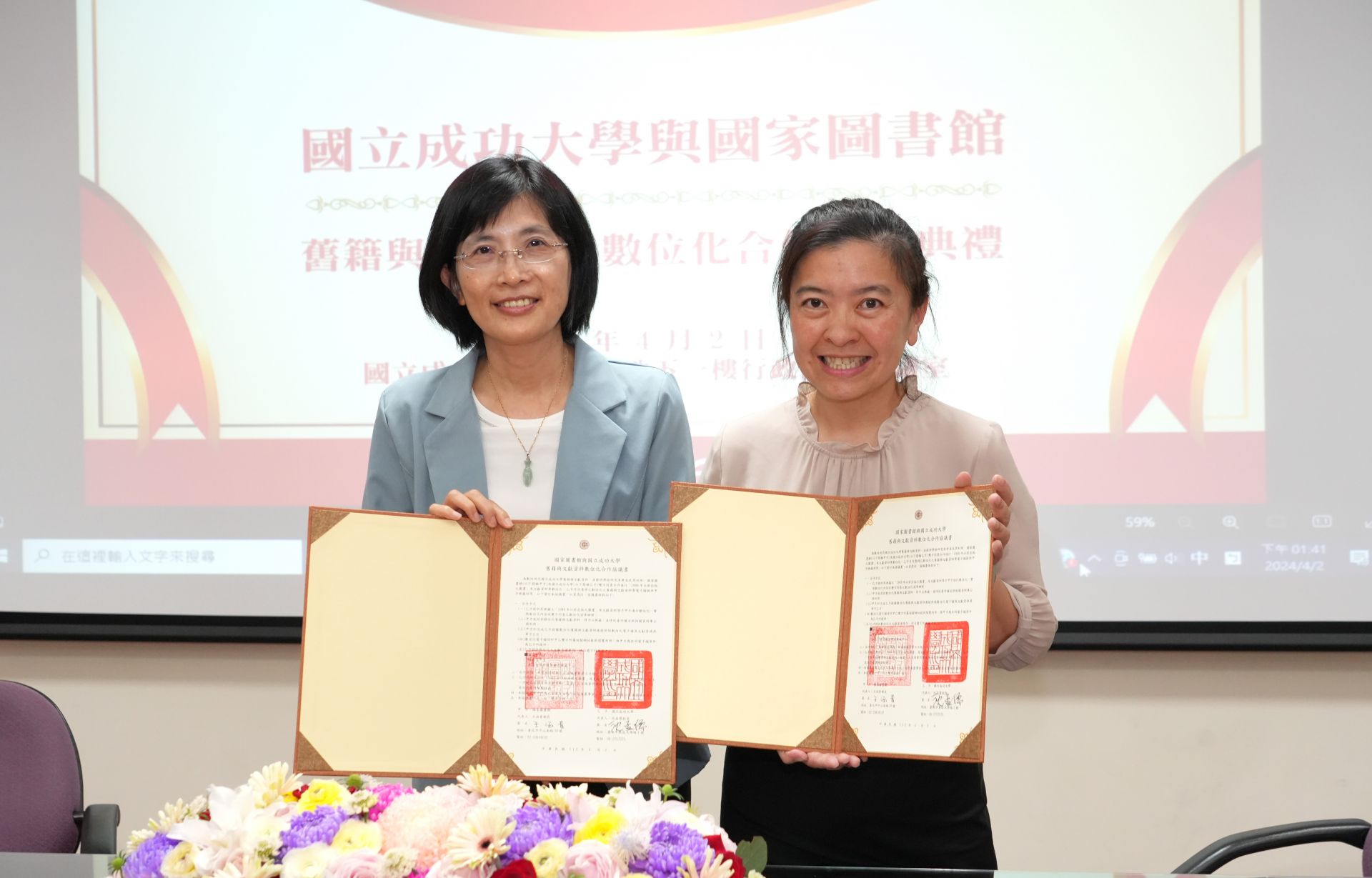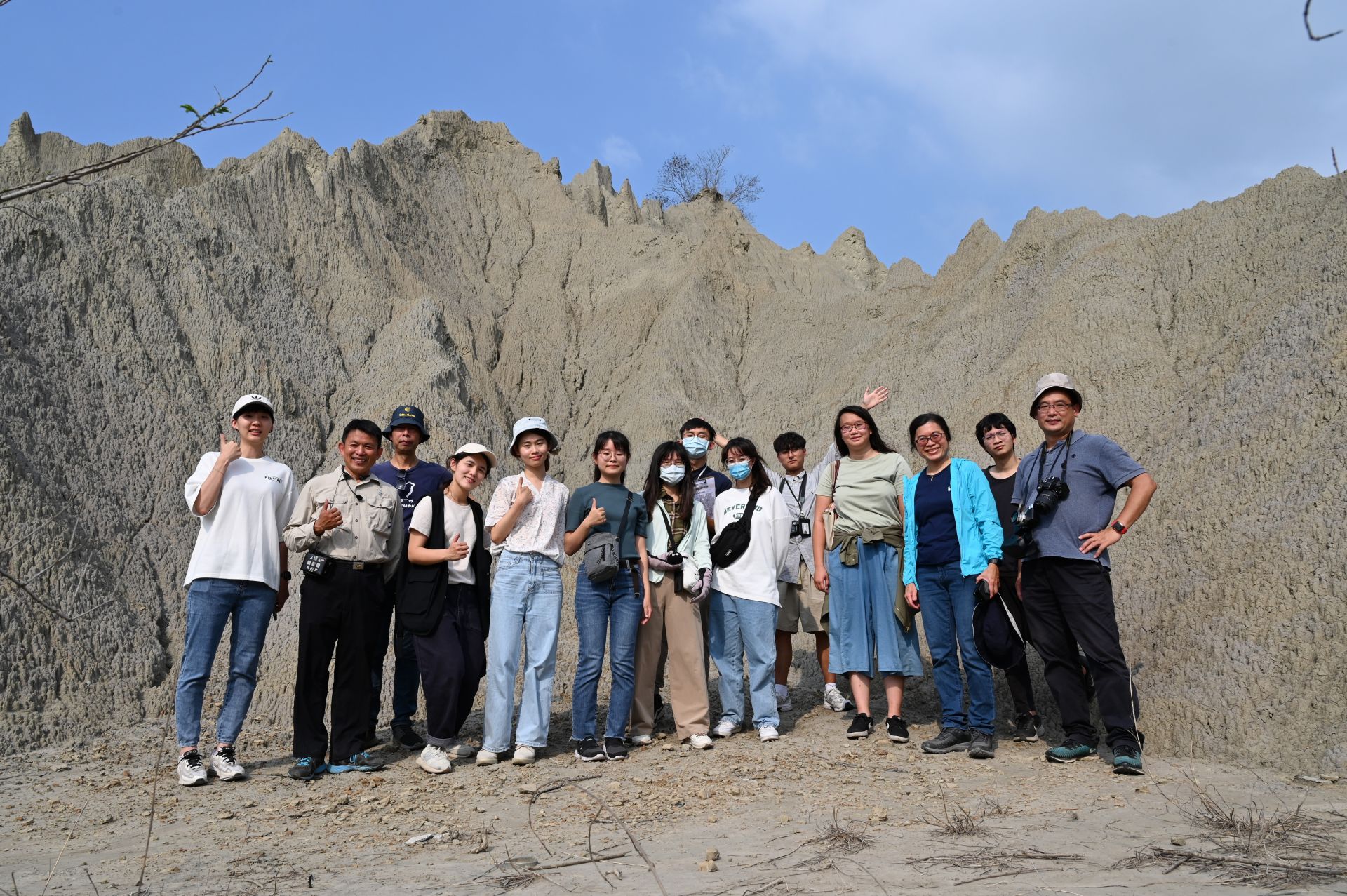NCKU Vice President Yuh-Neu Chen (陳玉女) remarked that the conference embodies the principle of “everyone writing campus and institutional histories,” reflecting the potential for public history to respond to social responsibility and contemporary societal and historical developments. Each institution has its own history, and even corporations increasingly value documenting their developmental narratives. Compiling a history requires more than collecting data; it involves verification, structured writing, and establishing a consensus on methodology. Vice President Chen noted that the 28 sessions of the conference, along with the diverse presentation formats, provide participants with rich experiences and knowledge, while encouraging multi-perspective approaches that make history more comprehensive.
NCKU Museum has long been dedicated to campus history research. During the 2022 anniversary, the university held the inaugural “Campus History Writing Workshop” and the first “Conference on University and Institutional Histories,” both of which received enthusiastic responses. Assistant Vice President and Museum Director Ping-Sheng Wu (吳秉聲) stated that, following the first edition, the current conference invited three keynote speakers, two of whom are international experts: Takumi Matsunaga (松永拓己), Deputy Director of the Kumamoto University Campus Museum, delivered a talk titled “The Kumamoto University Campus Museum: An Initiative of the University’s Efforts in Art and Culture”; and Zahirah Noor Zainol Abidin, Senior Researcher at the University of Malaya Asian Art Museum, presented on “University Museums: Connecting Memory, Knowledge, and Communities.” Both have long-standing experience in campus or university museums. The third keynote speaker, Li-Chuan Tai (戴麗娟), Researcher at Academia Sinica’s Institute of History and Philology, recently received the 69th Ministry of Education Academic Award and the Hu Shih Memorial Research Lecture in 2025, and presented on “Writing and Exhibiting University and Institutional Histories: Research Themes and Archival Development and Application.” Together, the keynote speakers offered diverse cultural perspectives and case studies to the conference.
Building on the 2024 “Campus History Writing Workshop,” themed Blossoming Campus Histories, which explored the birth, evolution, and development of universities over time and space, this year’s conference further expanded the scope of campus and institutional histories. Assistant Vice President Wu noted that submissions came from teachers, students, and members of the public, involving more schools and organizations than previous editions. The large number of submissions revealed emerging trends, such as the creation of archival databases, researching controversial histories, public engagement, transforming campus histories, integrating artificial intelligence, talent cultivation, and preserving disappearing traditions. He remarked, “We see both concerns and hope, and through collective efforts, we can continuously explore and innovate in this field without textbooks.”
In addition to oral and poster presentations, Professor Takumi Matsunaga held a micro-exhibition showcasing The Kumamoto University Photo Exhibition: From the Fifth Higher School Era to Today, featuring 24 photographs brought to Taiwan that complemented his keynote. NCKU Museum also hosted a mini book exhibition, providing attendees access to campus history-related literature and publications, offering additional inspiration and opportunities for discussion.
The conference attracted participants from 45 schools, museums, and other cultural institutions. Each session was chaired by professors from the Taiwan Comprehensive University System. Besides NCKU, Associate Professor Hsiu-Ling Kuo (郭秀鈴) from National Chung Cheng University and Distinguished Associate Professor Hsin-Yi Chao (趙欣怡) from National Chung Hsing University served as session chairs and commentators, exploring whether cross-university cooperation in higher education can produce unique perspectives on campus history beyond conventional understanding.
“Blossoming Campus Histories” was organized by NCKU Museum, with co-organizers including the Taiwan Higher Education Sprout Program, the Taiwan Comprehensive University System, and the Japan-Taiwan Exchange Association. In addition to the three keynote presentations, the five sessions of oral presentations covered themes such as: Campus History Research in the Digital Era, Rewriting Contemporary Campus Histories, Documents, Daily Life, and Collective Memory, When Professional Practice Becomes Institutional: History of University Departments and Museums, and Collections and Campus Cultural Assets. Together, these sessions reflected the richness and diversity of research in campus and institutional history.
[Event Agenda link]
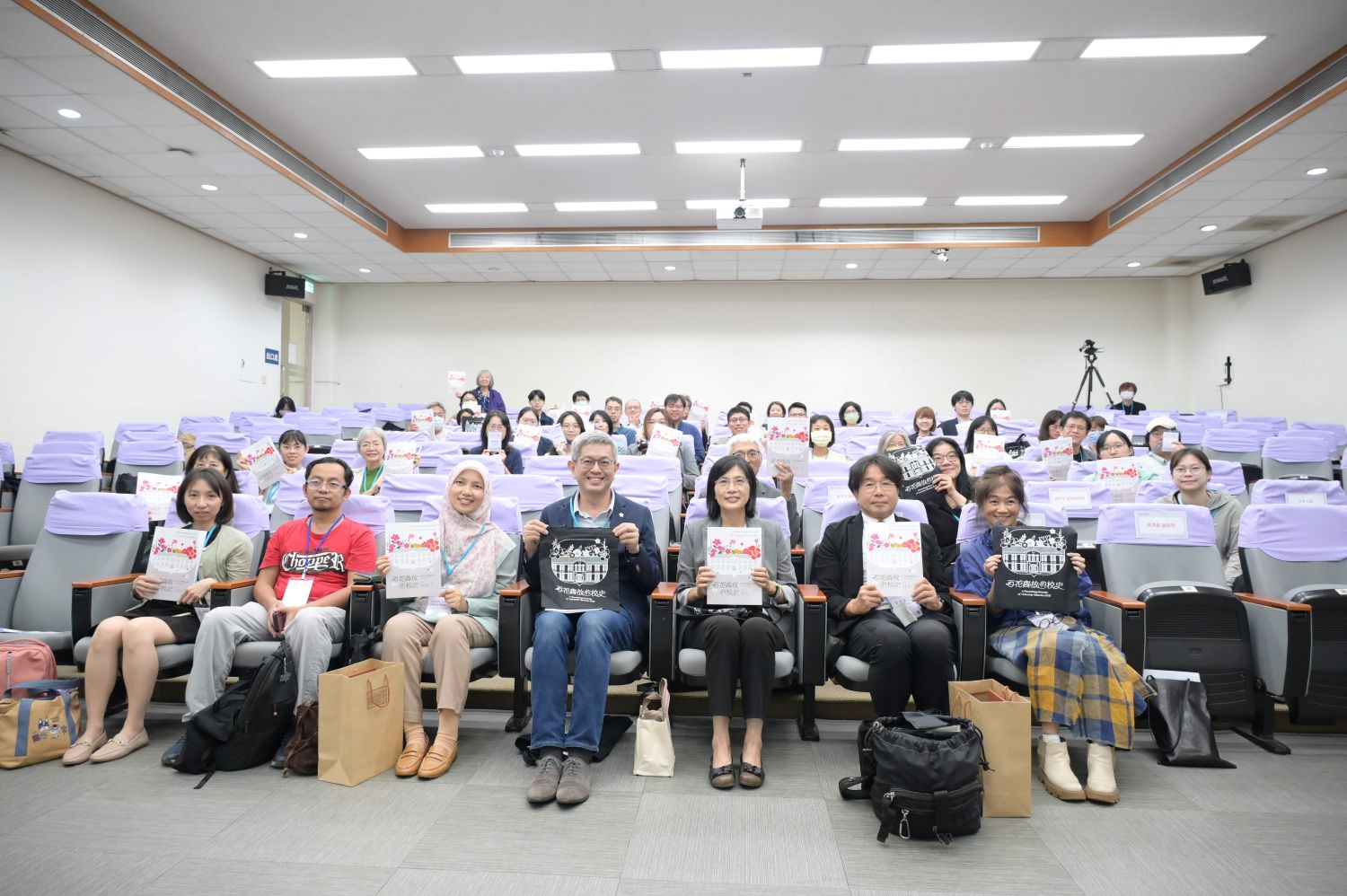
The NCKU Museum hosted the two-day “Blossoming Campus Histories: 2nd Conference on University and Institutional Histories” from November 6 to 7.
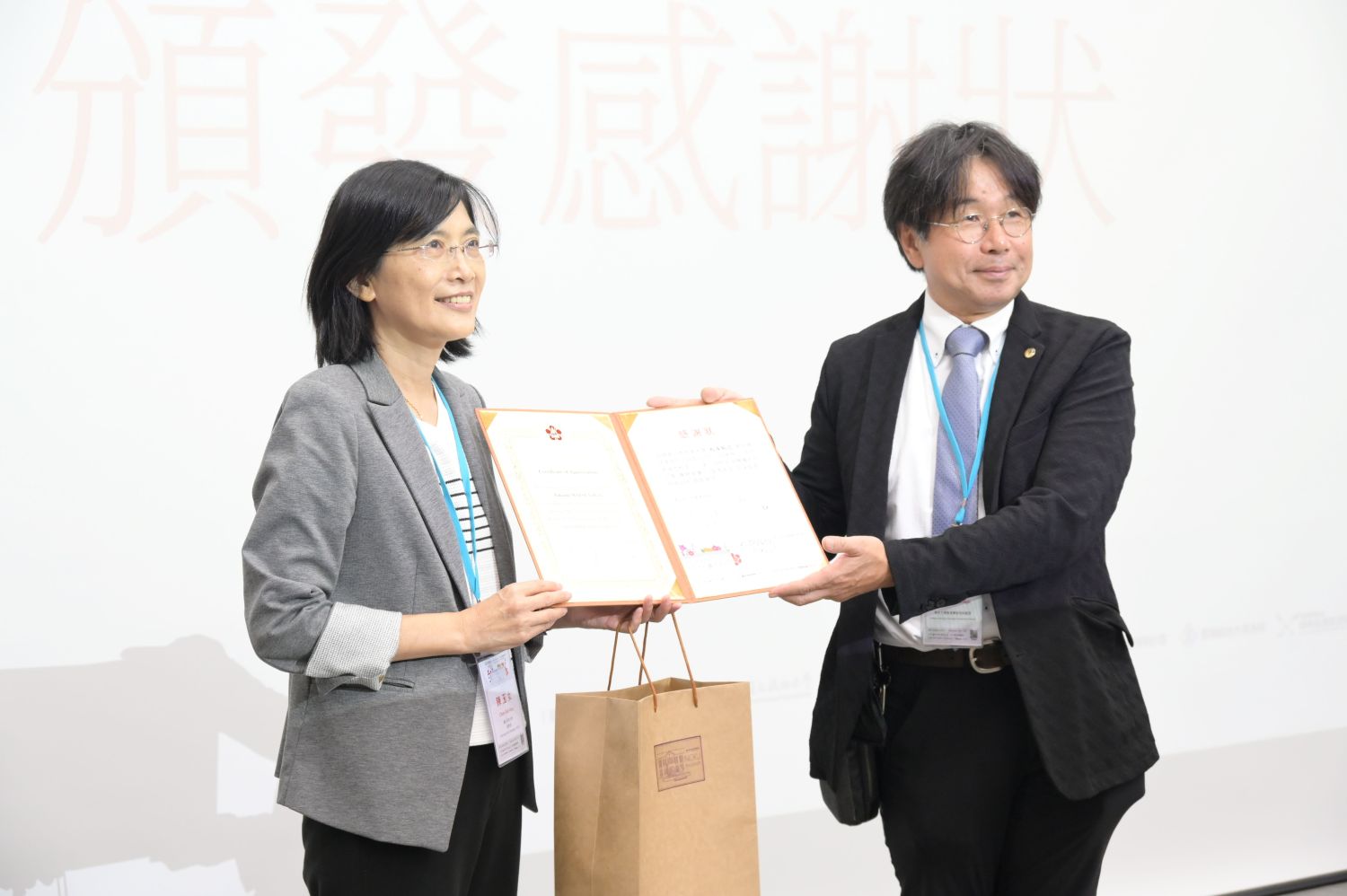
NCKU Vice President Yuh-Neu Chen (陳玉女, left) encouraged participants to use this conference as an opportunity to explore diverse perspectives, enabling a more comprehensive presentation of history.
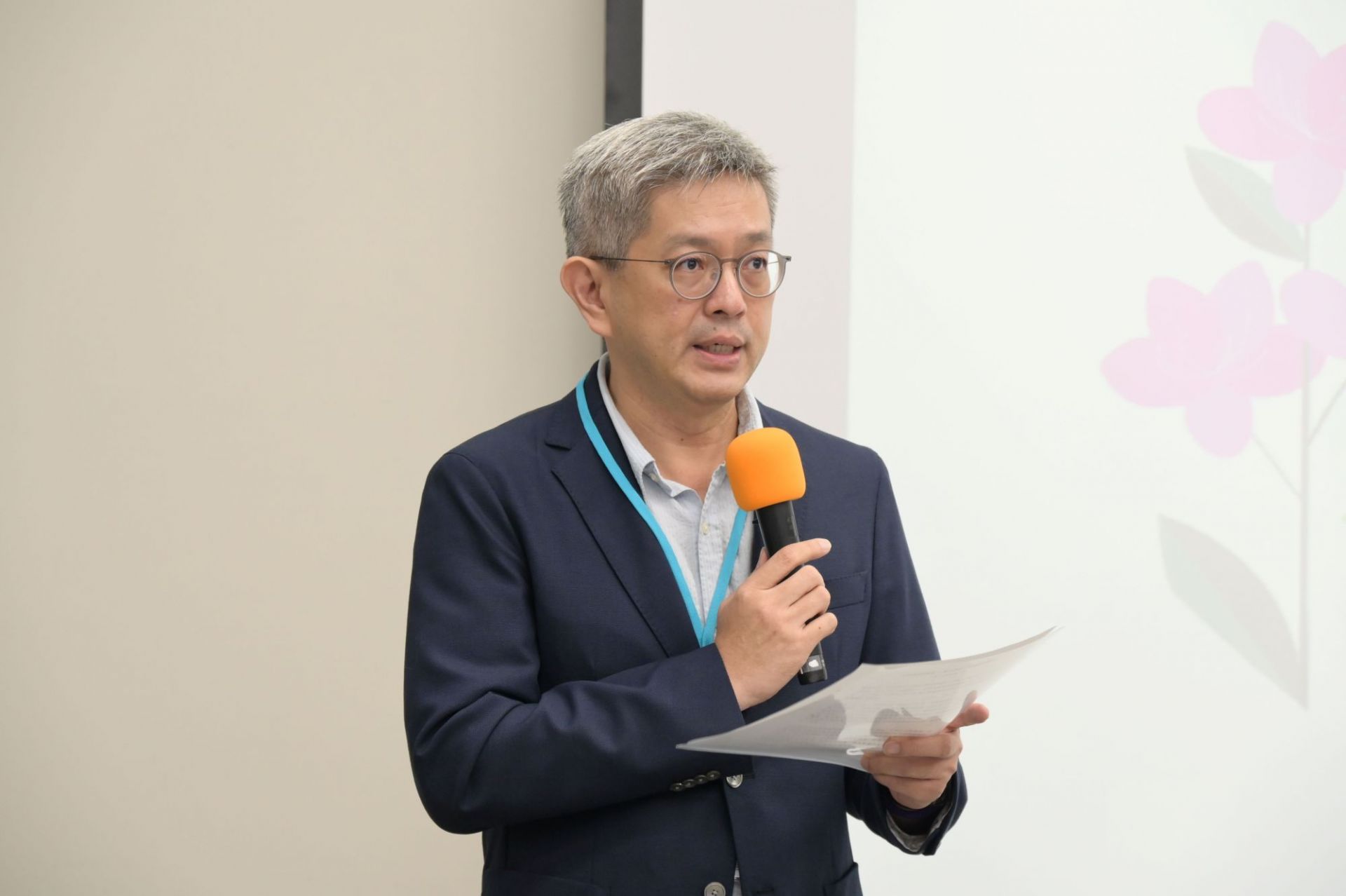
Assistant Vice President and Museum Director Ping-Sheng Wu (吳秉聲) of NCKU opened the conference by introducing the three invited keynote speakers.
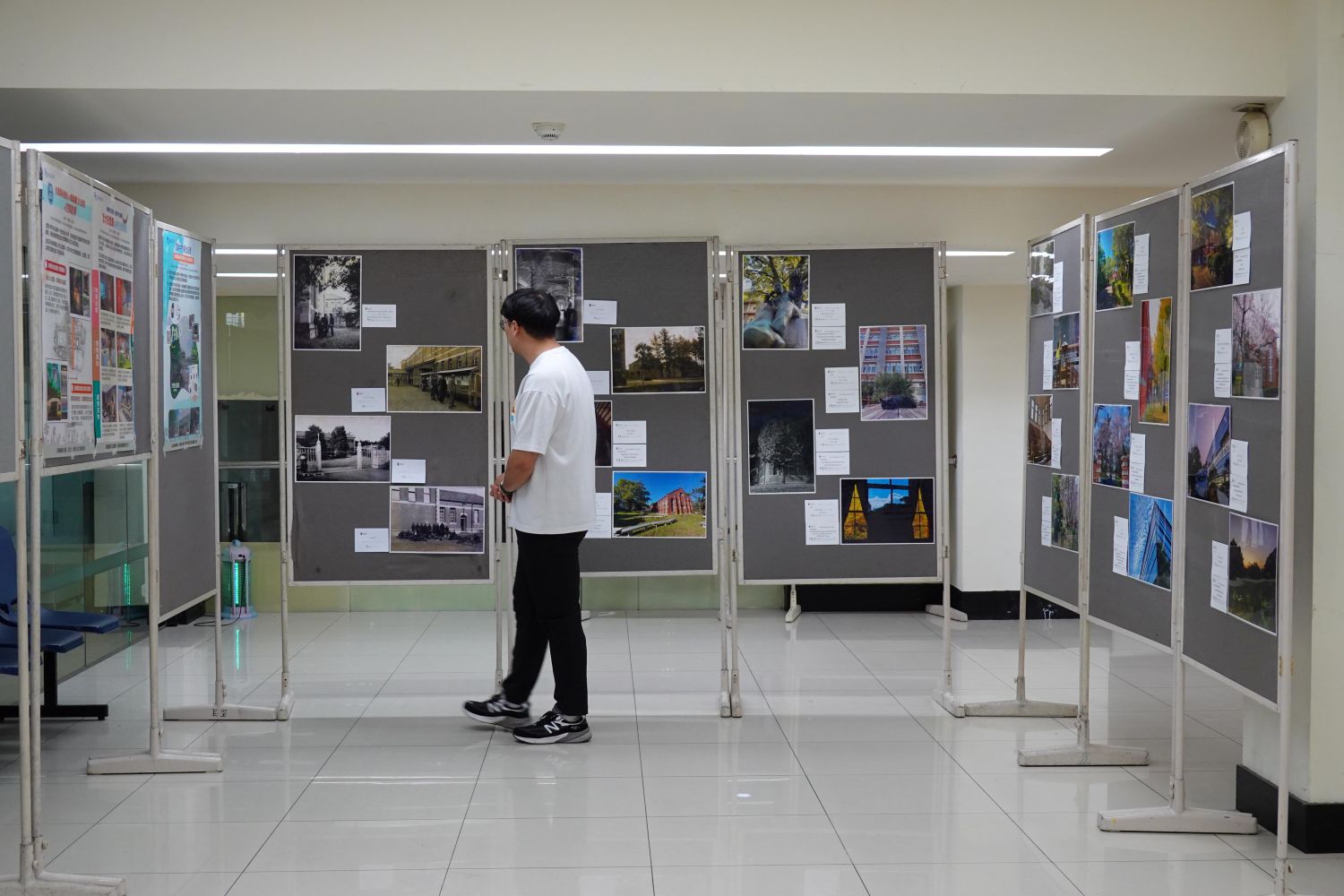
Professor Takumi Matsunaga from Kumamoto University, Japan, presented “The Kumamoto University Photo Exhibition: From the Fifth Higher School Era to Today,” complementing the content of his keynote lecture.
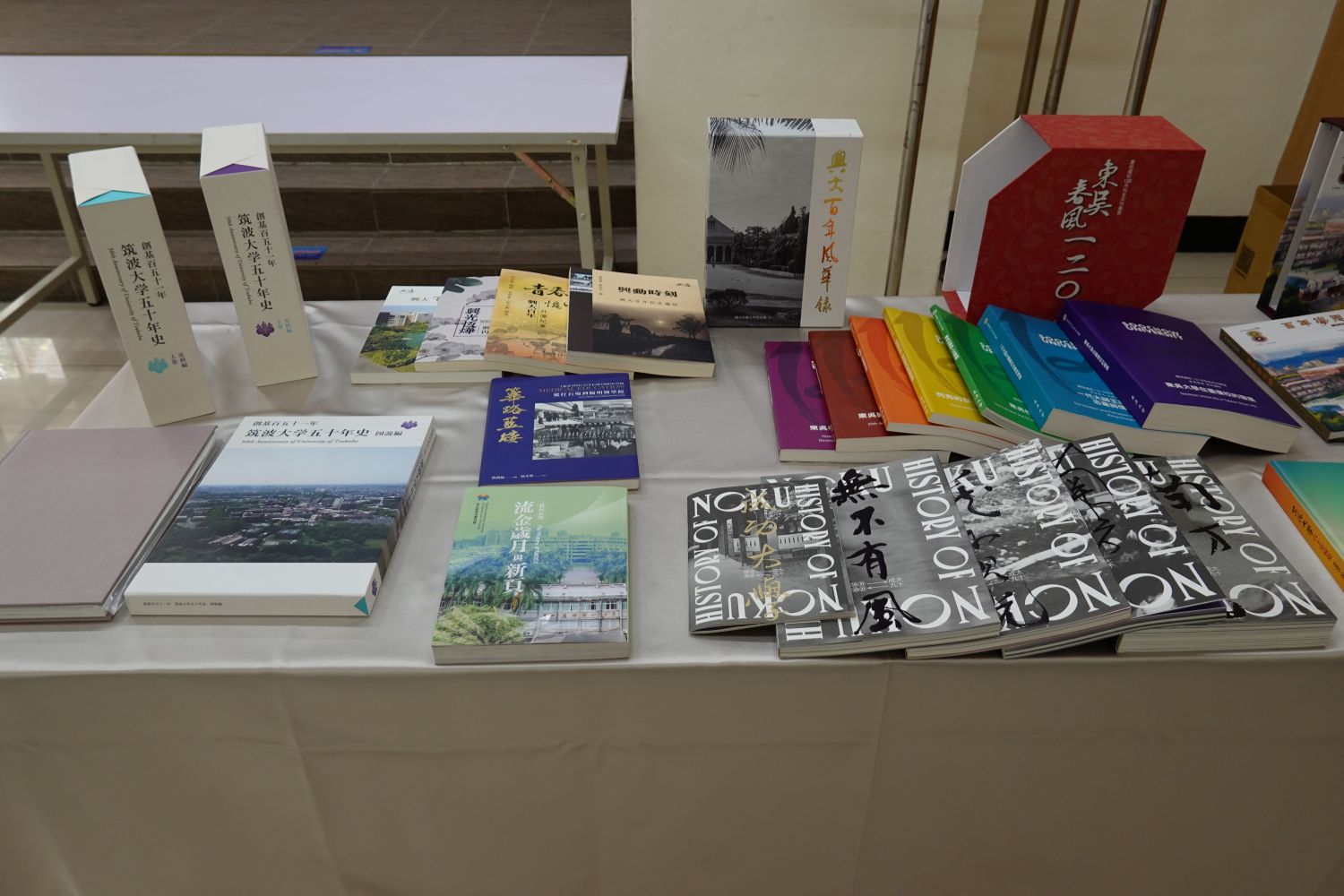
NCKU Museum also hosted a mini book exhibition, showcasing its own campus history collections alongside those of other universities for cross-reference. Through this static, small-scale display, the museum aimed to provide attendees with additional inspiration and opportunities for discussion.




![[USR Report] Healing Xin Guangdong: Blending Art and Nature for a Better Community](/userfiles/images/20250516084059825.jpg)
